|
Ideally, end-of-the-year celebrations and festivities are supposed to be happy and joyful. Yet, the reality is that the holiday season is often anything but fun. High school seniors and their families are particularly vulnerable because of the prolonged levels of intense stress they’ve been experiencing during the recent months due to post-graduate planning. If impending family get-togethers are filling you with worry, try these 3 things to make the holidays a more positive experience:
Most of all, be present for the family and friends in your life! Tell them you love them and appreciate them. After all, giving thanks to those who have helped you get to where you are today is a “double-gift” - the recipient will feel your love, and you will feel good for having expressed your gratitude. And isn’t “giving thanks” the entire point of the season?
4 Comments
It's that time of year again: high school seniors are so exhausted from writing college essays that post-secondary institutions that looked *amazing* to the students just a few months ago are quickly being taken off of application lists because of the volume of extra writing required (and it is REQUIRED - don't be fooled by any "optional" designation!). I completely understand! Think about it: schools are asking 17 and 18-year-olds to encapsulate "their essence" in 650 words (can YOU do that easily?), keep up good grades in their regular classes, and THEN continue writing additional 500-1000 word essays on the meaning and value of a Jesuit education or on how the student would "convert" Martin Luther King Jr.'s "I Have a Dream" speech into a tweet and why (both are real prompts, the latter coming from the University of Vermont this year). Every year, we ask more and more from our high school seniors, and, by this point in the process, burnout is very, very real.
Yet, it doesn't have to be! Yes, students will need to generate some extra new content writing these supplemental essay answers, but there are things that every applicant may do to make this task less onerous. Here are some tips for surviving the "supplementals:" - Most colleges and universities actually DON'T want to torture students with endless bizarre essay questions (I'm looking at you, University of Chicago, and your annual wacky, student-generated prompts!). In fact, if you write down the supplemental essay prompts from every school on that application list, you may begin to see a certain level of repetition. By this, I mean most of these schools will want to know the answer to "Why College X?" In other words, they will want an essay explaining what about this particular school appeals to you. DO: research the school online and find things that are SPECIFIC to that school - are there super-cool professors doing research that you want to do, too? Is there a particular program of study or center on campus that matches up with your own interests? The goal is to not only show that you have actually cared enough to research the particular school, but also to paint a picture of how you will fit in on campus. Do the legwork for the admission team reading your application: connect those dots and make it easy for them to see that you "get" this school AND that you will become part of that specific community easily. DO NOT: write that your parents are making you apply there, that the food seems good, or any other plethora of boring and generic answers. Do not repeat back statistics and facts about the school - the admission readers already know all about the size of the undergrad population and that the school offers a gazillion different majors. They care more about what YOU find amazing and awesome about the particular school. And if you can't find a single thing that gets you excited about this institution, why are you even applying there?? - Another very popular prompt across the board is the ubiquitous "Why do you want to study [insert your chosen major here]?" This one generates much anxiety, and understandably so. I'm here to tell everyone to take a deep breath! If you are undecided, that's OK! Use this space to discuss possible academic/career interests. The school does not expect high school seniors to have detailed "road maps" of their anticipated future lives! The admission officers just want to see that you've given some serious thought to what interests you academically, and to get a sense of possible directions for you (just make sure that what you write makes sense within the context of your entire application - for example, if your transcript and extracurriculars all demonstrate a passion for and commitment to the humanities and the arts, do not, then, write that you plan on becoming an engineer without having taken even pre-Calculus in high school). If you DO have some idea about your major, then don't worry about changing your mind. As I tell my students over and over again, there are no Application Police! No one is going to track you down on campus next year and ask why you aren't taking X, Y, and Z courses because you wrote about them in an application essay!!! Relax - write about what interests you and why, and see if you can connect some school-specific resources to your particular academic interests. - RECYCLE!!! You do not have to reinvent the wheel every time you start a new supplemental essay! Feel free to copy/paste bits and pieces of one essay for College X and integrate those fragments into a brand new essay for College Y. Especially when answering the "Why this major?" question, you can easily remix your answer from a previous version of that essay - just tweak it so that it is specific to that particular school (after all, your academic interests aren't really changing here, but the school-specific resources ARE different). A word of caution: PROOFREAD! You should be doing that anyway, but it becomes even more important when recycling essays! The last thing you need is to write about your passion for studying biology at Vassar and then mention your excitement to work with Professor Z who is on the faculty at NYU. If you use the advice above, the supplemental essay writing experience should feel more manageable, and stress levels should go down. If you find yourself still struggling, check out College Essay Guy's advice on writing supplemental essays, or shoot me an e-mail with your specific dilemma, and I'll see if I can offer some suggestions. Putting effort into writing your supplemental essays is worth it, even if you feel you're running out of steam. As John F. Kennedy once said, "Every accomplishment begins with the decision to try." Throughout this summer, I've been volunteering my time at the Newton Free Library, holding weekly drop-in hours where students and their families have been able to come and ask me any questions that they may have about the college admission application process. Because of the success of this program, I'm happy to continue answering your questions about the ins and outs of college admission. Do you have a question about applying to college? E-mail me at mvitols@gmail.com and you might just see your question show up in Ask a College Counselor! :)
For September, I've received some excellent questions, addressing issues from gap years to standardized testing. Here are my responses! Question: "More and more schools are making the SAT optional. When does it make sense to submit them, and when does it not?" Answer: I LOVE that more and more colleges and universities are going test optional! This makes the entire application process so much more student-friendly, since this move recognizes that not all student are able to test well (due to learning differences, anxiety issues, etc.). It also acknowledges that standardized testing has limited value in a truly holistic admission evaluation process. Ideally, I would love to see standardized testing being entirely eliminated some day, but, until then, I celebrate every new school that goes test-optional! That said, if you're applying to a test-optional school and you have very high test scores (by this, I mean that your test scores are higher than the average test scores of the student body at that college or university - it's all relative), by all means - report those scores! It will likely only have a positive effect on your overall application competitiveness. However, if you're applying to a test optional school and your scores are below their average student body test score range, then let the rest of your application speak for itself. By not reporting scores in this case, your application readers will consider more important factors, such as your course rigor, grades, essays, and your extracurricular activities. After all, you want to present your best, authentic self in writing to these readers. For a list of current test-optional schools in the U.S., click here. Question: "Does applying for financial aid make it less likely that a student will be admitted to competitive schools?" Answer: As much as I would love to say that applying for financial aid does not affect admission decisions, the sad reality today is that it does. As the decades-long trend of cutting federal and state funds for higher education continues, most colleges and universities are pressured to find sources of money to keep the doors open. Increasing the amount of "full pay" students (i.e., students who pay full tuition for their entire undergraduate education) is one way to help alleviate budget shortfalls. This is even true for the wealthiest and most elite of schools, since they are always looking to increase their endowments and purchase new real estate (Harvard University, Boston College, New York University, and Columbia University are just a few schools that immediately come to mind that have and continue to purchase real estate in their areas). Unfortunately, this is just one of the many flawed ways that higher education perpetuates privilege and limits access for all who desire a post-secondary education. The good news is that the vast majority of students who attend college receive some type of financial aid, in the form of institutional scholarships, external grants, federal loans, and work-study awards. In fact, during the 2016-2017 year, approximately 89% of undergraduate attending a private non-profit college were awarded some form of financial aid (this was the case for 83% of students attending public universities). Unless you have an oil well in your backyard, I always advise students and their families to apply for financial aid. Moreover, a handful of schools in the U.S. have committed to meeting 100% of a student's financial need (as determined by the FAFSA and CSS/Profile forms) and have pledged not to consider a student's ability to pay for college during the admission evaluation process. For more information on "need-blind" colleges and universities, click here. Question: "If a student is planning to take a gap year, should that student apply to schools during the senior year or the gap year?" Answer: Gap years are growing in popularity, and it's for a good reason: students who take a gap year between high school and college tend to take college courses more seriously and be more motivated, mature students when they arrive on campus. If you are thinking of taking a gap year, you should apply to colleges and universities during your senior year of high school. I recommend this because a) students change their minds all of the time, and what may seem like your dream plan in September of your senior year might not look so great to you by the end of your senior year, b) you're in school with a cohort of other seniors applying to college, so everyone is moving through this process together (this means that you will be a top priority for your school counselor who is focusing on seniors, and you will be able to commiserate with your peers - don't underestimate the value of peer support during stressful times!), and c) the last thing you'll want to do during a gap year is spend it applying to colleges. Once you have received all of your admission offers in the spring, you may then approach the school of your choice and discuss the possibility of deferring admission for one year (i.e., taking a gap year). If you are allowed to defer, this means that you will pay the school a deposit and the Admission Office will hold a spot for you in the following incoming class. This way, you can enjoy your gap year knowing that you will be attending your college of choice after your gap year has concluded. There is an important caveat, though - while most institutions will be happy to defer you for a year, your financial aid award might not be deferred with you. When discussing the possibility of deferring with your chosen college or university, be sure to ask about what will happen to your financial aid award and if you are able to defer it along with your admission. As long as you haven't deposited yet, you still have a certain amount of leverage with a school, and, if they really want you to attend and they are able to shift around their budgets, you may be able to negotiate a financial aid award package that will be waiting for you when you arrive on campus. Just remember that there are NO guarantees in college admission and financial aid, so always always always get everything in writing!!! For more information on gap years, check out Gap Year Association and Center for Interim Programs. If you would like to submit a question to Ask a College Counselor, please e-mail me at mvitols@gmail.com! The recent announcement of Marlboro College in Vermont merging with the University of Bridgeport (read more here) brought me both relief and sadness. I experienced relief because it meant that Marlboro wasn't going to be added to the growing list of colleges and universities in the U.S. that have or are going to close their doors forever. Yet, I also couldn't help but feel sad, knowing that a CTCL school like Marlboro would likely be forever changed by this merger. Why? Marlboro College, with its close-knit community and exceptional intellectual rigor, has offered a supportive home for independent-thinking undergrads since 1946. Moreover, Marlboro has encouraged young adults to pursue their love of learning in a broad liberal arts context while preparing them for graduate programs at Harvard, Yale, Columbia, and many more (having an incredible 5:1 student-to-faculty ratio certainly helps). In short, Marlboro has been a place where students have always been at the center of its community.
Yet, most people have not heard of Marlboro College, and, unfortunately, too many people currently feel that, if no one has heard of the school, then it must not be a worthy place of instruction. Marlboro has always been a tiny school, but, like many other small liberal arts colleges in New England in particular, the student enrollment has been dropping while operation costs have risen. Add to that a decreasing amount of college-age students nationally and the trend of students feeling pressure to abandon the liberal arts in favor of more career-centered and technical training, and the result is college closure after college closure in the last academic year alone (35 colleges have closed since 2016, and many more have merged with other institutions). Why is this important? Why should anyone care about some small colleges scattered across the nation that have had to shutter their doors? Big deal, right? If we haven't heard about these schools in the first place, then they probably deserve to shut down. After all, I want my child to attend a well-known college or university so that my child can have the best chance at success in life. At least, these are some of the reactions I have heard from both parents and students alike (to be fair, I'm speaking from a position of living in the metro-Boston area, a place saturated with higher ed and rife with elitism and snobbery). I hear these false assumptions too often, and it's time to defend these so-called "no name" schools! First and foremost, attending a "brand name" college or university is NOT a guarantee for student success or happiness! This seemingly pervasive, insidious myth has been perpetrated by the PR machines of schools in the country for decades, partially because of the need to raise revenue due to the sweeping and consistent cuts to federal and state aid for higher education, partially in response to the schools' need to control and manipulate their enrollment numbers (blame the U.S. News and World Report rankings for adding to this frenzy). In other words, the more students apply to a university, the more students their Admissions Office can reject, and the better "their numbers" look on paper (making their rankings go up and increasing their prestige). One case in point - Northeastern University. Just 20 years ago, Northeastern was largely considered a regional commuter school that accepted the vast majority of applicants. In 2018, Northeastern University boasted an acceptance rate of 19%!!!! This means that it is now harder to get accepted to Northeastern than it is to gain admission to such esteemed institutions as Carnegie Mellon, Emory, Bates, Wellesley, Vassar, Boston University, NYU, and RISD. How did this happen? Sure, there was an investment in the campus infrastructure and a cap added to class size, along with a notable effort to recruit more students from outside of the area. Yet, the true key to Northeastern's incredible success lies in the institution's determination to raise its rankings in the U.S. News and World Report (read more about this here). This meant that their PR department went into overdrive, and the result is that, if you stop any high school student within a 25-mile circumference of Boston, they are likely to tell you that they want to apply to Northeastern because of their co-op program. The truly sad part to me is that, if pressed further to explain their desire to attend Northeastern, these same students are at a loss. They have uncritically consumed the brand messaging from this particular university, and, because of the school's name recognition and rankings, think that this is a great place for them without any consideration for what a true college fit means or looks like. And Northeastern is not alone here. While I know that "name brand" schools like Northeastern are great places for some students, too many families overvalue prestige and name-recognition, at the price of true fit and a student's well-being (broadly defined here - I'm talking about considering how well a student fits in academically, socially, emotionally, career-wise, and financially). And this "fit" cannot be determined by a school's magazine ranking, by their acceptance rate, or by anything other than the student in question herself. For example, as I mentioned above, students who tell me that they want to attend Northeastern consistently to cite the school's co-op program as their main motivation for applying. Yet, these same students are unaware of or not interested in a place like Endicott College, a small school just over 30 miles north of Boston. While a student may easily graduate from Northeastern *without having participated in a single co-op*, Endicott REQUIRES all students to complete at least 3 internships in order to graduate! If experiential learning is truly a cornerstone of the promised Northeastern experience, why is not a requirement for the B.A. or B.S. degree? Meanwhile, Endicott grads will leave their alma mater with a deeper sense of self-knowledge, purpose, AND career training to boot precisely because they have had to explore different avenues and gain a variety of out-of-classroom experiences. Nevertheless, families seem to dismiss a school like Endicott, erroneously claiming that it doesn't offer enough academic rigor or will put their child at a disadvantage after graduation - all because it doesn't offer the "brand name" that other places do or has a higher admittance rate than other schools. This is why the disappearance of too many small liberal arts schools deeply concerns me. A small, supportive school like Endicott could be a wonderful place for the right student, and the College will certainly prepare their graduates to succeed in whatever endeavor they choose. Yet, these kinds of higher ed gems are losing ground because of the myth of hyper-selective schools somehow offering a better experience for students. These families forget that gaining admission does not equal success or happiness. Today, only 41% of first-time full-time college students earn their undergraduate degree in 4 years - less than half! This is largely due to financial difficulties, as well as to increasing transfer rates extending the time that students take to complete all graduation requirements. These statistics just make it even more obvious to me that FIT MATTERS MORE THAN THE BRAND NAME! Our culture needs a broader mindset when it comes to college admission. Higher education remains a key component to improving a person's life (whether it means moving up the socio-economic ladder or an improved quality of life and mental health). Students need to identify the best places that will support their individual needs and desires, not sacrifice their well-being to gain a diploma with a fancy name on it. After all, what truly matters are a student's motivation to make the most out of the opportunities that college provides and the skills that she learns during her undergraduate time - these things lead to personal fulfillment and career success, not being able to boast about attending a highly selective school. My hope is that more families truly see this, and have an open mind to send their children to "no-name" schools that are the right fit. Otherwise, small liberal arts schools like Marlboro will become relics of the past, increasingly replaced by the corporatization of higher education. As the school year begins to wrap up and high schoolers are preparing for final projects, final exams, and graduation activities, it’s time to start planning for the summer! Some of you will already have chosen camps to attend or made travel plans. Fantastic! But for those of you have not had a chance to think about this summer yet, don’t freak out! You still have ample time to map out summer activities that can be both fun AND helpful for your college journey. Whether you’re a high school student or a parent of one, here are some suggestions on what everyone can be doing now to make the most out of the upcoming summer months.
For high school first years (rising sophomores): Congratulations! You’ve almost survived your first year in high school! Woo hoo! Now go have fun and enjoy your summer - you deserve it! And, if you feel ambitious, perhaps consider devoting some time this summer volunteering at a favorite non-profit organization or charity. Ideas include spending a few hours a week volunteering at a local food pantry, animal shelter, neighborhood “clean-up” project, etc. Not only will you feel great helping others, you will also have an awesome activity to add to your resume. Plus, you never know who will meet when volunteering (such as a future internship or job connection)! For sophomores (rising juniors): You are in an excellent position - in addition to fun activities this summer, you have a chance to devote some of those July and August days to a variety of activities that will give you a leg-up on that very important junior year! While you don’t have to do all of the following suggestions, it’s a good idea to at least do one of the following things:
For juniors (rising seniors): This summer is super-important for you! Use this time wisely, since it can effect the quality of your life this coming fall. Why? Because the more work on your college applications that you are able to complete over this summer, the easier your life will be when your senior starts and you’re stressed out over your courses and extracurricular activities. And before I hear any groans, a little planning goes a long way. Even if you set aside only 1 hour/week during this summer to work on college application-related activities, you will be surprised how much you can accomplish. For example, aim to complete your college application list by the end of June (meaning that you will have a pretty solid list of schools that you want to apply to, balanced with a few “reach” schools and mostly “target” and “likely” schools). The Common Application has already released its personal essay prompts for the 2019-2020 application season, so you can use July to brainstorm, draft, and polish that all-important college essay. Then, the Common Application goes live on August 1st, so you can spend August completing the online form and get a jump start on those supplemental essays. If you do these things for just one hour a week over the summer, you will be in excellent shape when September rolls around, and your college stress will be greatly reduced (since you will have already done so much work on your applications!). For seniors (getting ready to enter college): First of all, you deserve to celebrate. After you’ve completed all of your final exams and projects, savor senior activities and your graduation activities! You’ve worked so hard and you deserve to recognize all of your accomplishments! However, once the parties have ended, you should start preparing for your transition to college. I highly recommend getting a copy of Harlan Cohen’s book The Naked Roommate, since it is chock full of fantastic advice on how to navigate this exhilarating but also stressful transition. He also has great advice on his website, and his TED Talk will make you laugh while teaching you how to successfully navigate your transition from high school student to college first year. Next, when shopping for your college dorm supplies, do not fall trap to the advertising hysteria! You will be bombarded with all sorts of stores wanting you to spend your and your parents’ money there, but resist! Instead, contact your college and university and find out exactly what will be provided in your dorm room (so you don’t have to buy it). Also, once you receive your roommate information, coordinate with your roomie on who will bring what - I’m thinking of the things that you can share (ex. cube refrigerators, microwaves, tea kettles, coffee pots, etc.). After you’re done shopping, make sure that you know how to basic “life skills” things - can you do your own laundry without a disaster occurring? Can you open your own checking and savings accounts? Do you know how to cook something basic for yourself? What medications do you take, when do you take them, and do you know how to obtain refills? While some of these things may seem obvious, every first-year college student needs to know how to do these things. The summer before you begin college is a great time to make sure you know some basics when it comes to “adulting.” Summers offer wonderful opportunities for growth, exploration, and preparation, so be sure to plan ahead and have both a fun and educational time this July and August! The recent indictment and arrest of 50 people, including celebrities and business leaders, for racketeering, fraud, and money laundering may have shocked people across the United States. I certainly was bombarded with questions from friends and family about my thoughts on the crimes committed by parents, college coaches, College Board administrators, and by others. While this particular case is far from over, and I'm sure that new outrageous details will emerge as the criminal proceedings continue, Operation Varsity Blues already offers all of us some valuable lessons and important insights into the state of higher education in the U.S. today. Here are the 3 most significant things that we all should take away from this scandal:
Operation Varsity Blues is horrific, but it's important to understand how and why such egregious behavior could occur. While 50 people may have been arrested and charged with committing crimes, far more of us have been guilty of buying into the myth that greater selectivity must mean a better education or college experience. In a way, this fever for elite schools has been fed by parental and student misconceptions, with colleges and universities only stoking that fire for their own benefit. True change will only come when we all stop perpetuating this false belief that getting into elite schools is the key to future happiness and success. Instead, let's focus our energies on identifying the schools that will support each student's individual academic, social, emotional, and financial success. A good place to start is by making sure that we all encourage ethical behavior in our actions and our words. It may be a cliche but it's true: honesty is the best policy. When talking about college, more and more people discuss the option of taking a "gap" year, i.e., the year between graduating from high school and starting college when students may elect to travel, perform community service, take classes at a local community college, participate in a formal Gap Year program, or do something completely different. Yet, there is another "gap" involving college that more families need to address - the "gap" between the financial aid package that a student receives from a college and the remaining money that is due to the school that's NOT included in the EFC or Expected Family Contribution. Unfortunately, financial "gaps" are increasingly becoming the norm at most colleges and universities, making this issue a crucial one that has be taken into account when high school seniors and their families decide between admission offers.
First, how is financial need calculated? All students and their families should complete the FAFSA (Free Application for Federal Student Aid). Once the FAFSA is submitted, the government uses a special formula (using a family's income, assets, and investments, among other things) to calculate an EFC. It's important to note that an EFC is not necessarily the actual number that a family will be expected to pay every year to support a student's post-secondary education. However, it's still an important number, since the EFC tells financial aid offices and families what they can be reasonably expected to spend on the student's education (this becomes important when determining financial need, since some families may have the assets to spend on their children's education, but don't want to liquidate those assets to pay for school - these families should expect to see a relatively high EFC, since the government believes that the responsibility to pay for college rests primarily on the student and on the student's family). Next, a college or university will take its "Cost of Attendance" or COA (what it actually costs each year for a student to attend this school, including everything from tuition to books to travel to clothes) and subtract the EFC from the COA. In short, COA - EFC = Financial Need. Second, a student's "financial need" does NOT necessarily equal the student's financial aid package that is awarded by a school! In fact, most schools no longer guarantee or promise to entirely cover a student's financial need. Here's a fictional example based on real-world numbers. Senior Jimmy has been accepted to Boston University and he's thrilled! However, before his parents are willing to send in his deposit committing to attend BU this fall, they want to discuss finances. Jimmy pulls up BU's website on his laptop, and sees that the estimated COA for BU in the 2018/2019 academic year for a resident student is $72, 618. He then gets out both his admission letter (which lists all merit aid that he's received from BU) and his financial aid package letter (which lists all of his federal student loans, work study awards, and possibly also shows the merit aid from the admission letter). Let's say his combined aid package from BU looks like this: - Boston University Scholarship X => $25,000 - Subsidized Stafford Loan (highest limit for dependent students) => $3,500 - Unsubsidized Stafford Loan (highest limit for dependent students) => $2,000 - Federal Work Study Award => $2,000 TOTAL FINANCIAL AID PACKAGE: $32,500 Sounds great, right? $32,500 is a lot of money! And that's true, but Jimmy has forgotten to subtract this amount from the COA. Once he's done that, he sees that there's still $40,118 that he will have to pay each year to attend BU! His parents remind him at this point that their EFC is $20,118. Even with that EFC, $20,000 still will be due to Boston University in order for Jimmy to matriculate there. This $20,000 is the "gap." Here's where students and their families get into trouble. Once a student accepts an admission office (and, by implication, the specific financial aid package), that student should expect to receive approximately the same package every year, provided that the student maintains required satisfactory academic progress for both the scholarship and the federal loans. The limits for borrowing money from the federal government will increase slightly with each year, but that will barely cover any expected increases in tuition, fees, and the general cost of living. Moreover, loans HAVE to be paid back - this is not "free" money. This means that this $20,000 gap will be there for 4 years, meaning that, in addition to the federal loans, the student will need to somehow come up with $80,000 to pay for this degree (IF the student manages to complete all degree requirements in 4 years). Financial gaps are a very serious problem, and they can easily cause students to borrow enormous amounts of money at unfavorable interest rates, ultimately leading to the current college graduate debt crisis. So, what can students and their families do? The single most important thing family can do is discuss finances openly and honestly as soon as possible in the college admission application process. As much as parents might not want to talk about money with their kids, it's crucial for students to know what's reasonable and what's not when it comes to paying for college. Parents should never have to dip into their own retirement funds to pay for a child's college education, and students should aim to graduate without enormous amounts of debt. To that end, if everyone in the family is on the same page regarding how much is too much to pay for college, then much heartache can be avoided by having everyone look at and apply to schools that are reasonably affordable to the family (in other words, don't look at a school that is most definitely out of reach financially to avoid the student falling in love with a school that is out of their reach). This becomes especially significant when considering applying Early Decision to a school. Since ED is legally binding, this commitment means that a student agrees to attend this college *regardless* of the financial aid package awarded. This is the reason why I highly discourage families from considering ED as a viable application decision, unless the family is very fortunate and money is not an issue (in other words, the student can be considered "full pay"). Most people aren't in this situation, so applying EA or Regular Decision allows families to receive ALL offers of admission and aid before making a decision. To that end, use the worksheet found here to help compare the different costs and aid packages of each school that has admitted the student. Seeing costs laid out clearly side-by-side may help make the best decision possible (in other words, that dream school might not look so appealing when you see that your second choice college is giving significantly more scholarship money). Next, if a family feels that the aid package is too little, parents can write an appeal letter to the financial aid office. When writing that appeal letter, be sure to be polite, grateful for the aid already awarded, and very clear about what family circumstances would merit a reconsideration of aid. To see a sample appeal letter, look here. Be sure to include documentation with your letter that supports your situation, as well as any award letters from comparable institutions (in other words, don't ask Dartmouth to reconsider its aid package because you received more scholarship money from Franklin Pierce University - those two schools are not compatible at all!). If this is your child's dream school, then definitely mention this! Be sure to make it clear to the financial aid officer that your student will definitely enroll in this school IF the school may find any additional aid for the child. Lastly, students should ALWAYS be on the lookout for external scholarships and grants. I always tell students to apply to many scholarships and to apply often! Free money is free money, no matter if it's $100 to help pay for books or $10,000 that can go towards filling that "gap." Two good places to start looking for scholarships are Fastweb and The College Board's Big Future website for scholarship and grant research. Both are free to use, which is important - students should NEVER have to pay to research scholarships and they should NEVER pay to apply for scholarships. Students can also check with their high school guidance offices to get a list of local scholarships - the more obscure the scholarship, the better chance the student has to win that scholarship (simply because there will be so few applicants). Gaps are an unfortunate reality in today's higher education landscape. That doesn't mean that it's impossible for students to make their college dreams come true! With research, persistence, resourcefulness, and advocacy, students and their families can make affording college a reality. Just be sure to mind that "gap"! The holidays are over, the crunch for seniors to submit their college applications is done, a polar vortex has descended on half of the country - it's feels like a winter slump. But don't let the calendar fool you. There are plenty of ways to use this quiet winter time to make valuable progress on your college plans, whether you're a senior in high school or a ninth grader. Here are my recommendations for what you should be doing for the next few months to make your college future brighter and better:
High School Seniors: Yes, you read that right, and I did hear that collective groan (along with the scattered mutterings of "Are you kidding me???"). Just when you felt as if you were *finally* done with all things college and were getting ready to enjoy senioritis, I'm here to remind you about several things: 1) DO NOT fall into to the senioritis trap! Your final grades will be sent to the college/university that you will be attending and the school reserves the right to revoke your acceptance if your grades slip dramatically. Moreover, you can't go to college if you don't actually graduate from high school, so there's one more reason to keep those grades up. 2) Now that your school applications are in, this is the perfect time to research and apply for scholarships!!! Free money is free money, whether it's an extra $100 to help pay for books or an extra $1000 to go towards tuition. Start with your school's guidance office - they usually keep a list of school-based or local scholarships. Get that list, review it, and apply to the scholarships that seem like a good fit (i.e., you meet the application requirements and you haven't missed the deadline). Also use fastweb.com and bigfuture.collegeboard.org/pay-for-college/grants-scholarships as places to find scholarships that you may apply for (just be careful and always read the fine print - you may initially be matched with a scholarship but that fine print tells you that you actually can't apply). Some scholarships may ask for essays - see what what you can "recycle" from all of those essays that you wrote for your college applications. Don't be afraid to "remix" several different essays into a new one for a scholarship (just be sure to proofread carefully for any typos!). Always remember: never pay to apply for a scholarship! You should not have to pay money to get money in this case. High School Juniors: Get excited!!! This is the beginning of your college journey, and it's your opportunity to make your first real "adult" decision about your life! It's also a chance for you to treat this process as a chance for self-discovery, and an amazing way to gain important self-knowledge that will help you grow. In other words, now is the time to dream big! So, where do you start? 1) Talk to your parents about using some time during upcoming weekends or February break to go visit some local college campuses. These schools don't necessarily have to be places that you actually want to apply to, but they should be places that will give you a taste of what it's like to be on different college campuses. Make appointments for an information session and a campus tour (you should be doing that, not your parents, but make sure that parents are on board with going with you, so coordinate your calendars!). Make it a point to check out at least one school that is a large university, one that is a mid-size school, and one small college. If you can, visit a school that is located in a big city, one that is in the suburbs, and one that is rural. Take notes, since you'll be bombarded with lots of information! Write down what you liked and didn't like about each place, and write down notes on what it felt like to be there - for example, was it fun walking across a huge campus with lots of people around? Did that small campus feel like a real tight-knit community? Did your gut tell you something felt really right or really wrong? These details all matter and will help you when working on a list of schools to explore. 2) Start thinking about what is important to you. What kind of educational experience do you want out of college? What kind of social experience do you want? I find that taking the time to reflect on what you've liked and disliked about high school provides a good starting point for making a list of things you want to get out of your college experience. You might also want to try taking a personality test online to get a better insight into yourself. One of my favorites is www.16personalities.com/. It's FREE (one of my favorite words), it's based on the well-known and respected Myers-Briggs personality theories, and it's easy to complete. Once you answer a series of questions honestly, the site will tell you what your personality type is, and then suggest possible careers for you (along with lots of other information on how you relate to others, how you learn, what are your strengths and weaknesses, etc.). It's always good to talk about your results with a trusted adult, whether it's a parent, a teacher, or a counselor. Other tools that can help you clarify what you're looking for in your future college experience may be found in the awesome book by Steven Antonoff College Match: A Blueprint for Choosing the Best School For You (find it here). Use the worksheets in this book consistently and honestly, and you'll end up with a much clearer idea of what you want for your higher education experience. This will then help you research schools online that match your criteria, and you'll be well on your way to creating a great application list. High School Sophomores and First Years: You may be thinking "Come on! I'm too young for this college thing!" Believe it or not, you should be thinking about "college stuff" right now, but not in the way that your junior and senior friends are thinking about it. For you, this is the time to explore some possible college majors, fields of study, and careers, but all in a very fun way. What do I mean by this? You've got some vacation time coming up in February and April - maybe you can ask to shadow a friend's parent at work if you think that their job is interesting and might be something you'd like to do someday. Or perhaps you care greatly about volunteer work. Vacation weeks are a great time to volunteer, so see if they need help at a local food pantry or at a local religious institution (such as your church, temple, mosque, etc.). And summer will be here before you know it! Don't have plans yet? Start exploring now. Perhaps you can apply to be a counselor-in-training at your old camp. Is there a course you'd like to take at a local community college this summer? Maybe you want to intern at a local tech company - reach out now and see if they are open to having high-school interns in their office over the summer. Or maybe you just want a job - that's great, too! Start drafting a resume and getting it out there to places where you'd like to work. Winter is when institutions plan for the summer, so NOW is the time to get cracking on your vacation/summer plans. You can have fun, you can learn new things, you can possibly earn some money, AND you will have at least one new activity to put on your activities list when the time comes to apply to college. Winter doesn't have to be hibernation season for high school students. Use this time to your advantage, and once the flowers start blooming, you'll be very happy that you did! ’Tis the season for beginning to work on college financial aid applications! While you or your students may have been busy working on the college applications themselves for a while now, it’s important to remember to file the FAFSA and, when applicable, the CSS/PROFILE soon. Both forms go live October 1st, making now the perfect time to gather your tax returns and investment information. As you get get ready to complete these financial aid applications, keep in mind the following tips:
Have more questions about college financial aid? Come to my presentation on College Financial Aid 101 at the Newton Free Library on Thursday, October 4th, at 7pm! You’ll learn how to navigate the college financial aid application process, and receive a handout with valuable resources. Hope to see you there! August is a great time for high school seniors to work on their college essays! Students have had a chance to unwind and relax from the previous school year, while the stress of senior year hasn't started yet. Moreover, the Common Application for 2018-2019 just went live yesterday, allowing students to see this year's prompts for any supplemental essays for specific colleges and universities. Whether you're writing your Common Application Essay (the one that is sent to every school to which you're applying) or a Supplemental Essay for a specific school, here are 4 things to keep in mind:
1) Use your own voice! Too many students think that college essay writing has to be convoluted, filled with flowery language and run-on sentences that are hard to follow. The exact opposite is true! The college essay allows the reader to finally get a REAL insight into a student's personality and character - in other words, the essay should demonstrate the ESSENCE of the student beyond the facts and numbers that fill the rest of the application. Because of this, it's always best to write in your own voice, using your own words. This also means that parents, counselors, or consultants should NEVER write any essays for the student!!! 2) Be clear and concise! The harder your reader has to work to understand what you're trying to say, the more likely it is for the reader to just give up and put your application file in the "deny" pile. Keep in mind that your reader is plowing through hundreds of applications for days on end. You want to make the job or reading your application as easy as possible, and as *memorable* as possible. To that end, aim to write short, clear sentences that get right to the point. The tighter the writing, the better. 3) Use active verbs! Just as with overly flowery language, many students falsely assume that writing in the passive voice is somehow more formal or sounds more "academic." Nothing could be further from the truth! The passive voice deflates writing, draining your words of their potential power. Instead, choose to write in the active voice to communicate your charisma and energy! Active verbs make writing come alive, and that's precisely the effect you want to achieve - use active verbs to help the reader imagine what you experienced and why. 4) Don't be afraid to be vulnerable! Using your own voice and demonstrating who you are as a person require honesty. Especially when you're addressing challenges, setbacks, or disappointments, it's particularly important to let yourself be vulnerable in your writing. We have all been there, and we understand! Sharing your vulnerability in a genuine way will increase the connection a reader feels with you, triggering empathy and making your application that much more memorable. It will also increase the chances that your file readers will want to fight for you when it comes time to make decisions in the Admissions Committee meetings. Just make sure that your vulnerability is authentic - trying to fake emotion when it is not sincere is as bad as a parent writing the essay (readers can spot fake emotion from a mile away). Following these tips should help your essays shine, no matter which prompt you choose to answer! However, if you find yourself stumped or suffering from writer's block, please contact me for further assistance on how to present your best self on paper for your application. Happy writing! |
AuthorMaruta Z. Vitols is an independent educational consultant in the metro-Boston area. When not helping students achieve their dreams, she enjoys hanging out with her dog, exploring new places with her husband, and doing yoga. Archives
April 2023
Categories |

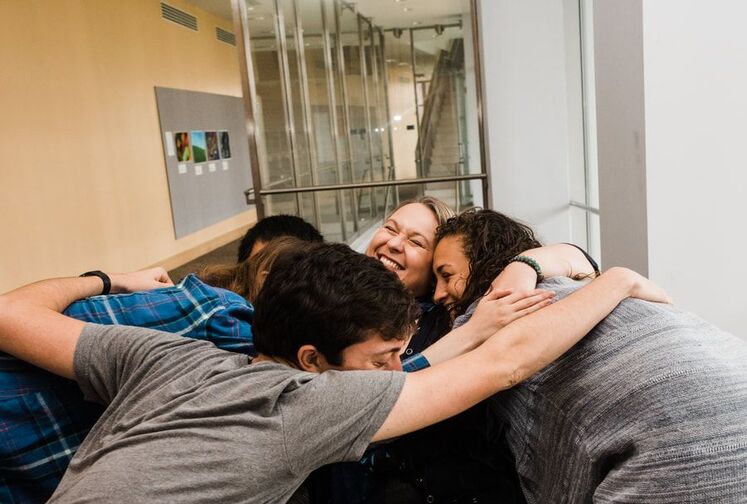
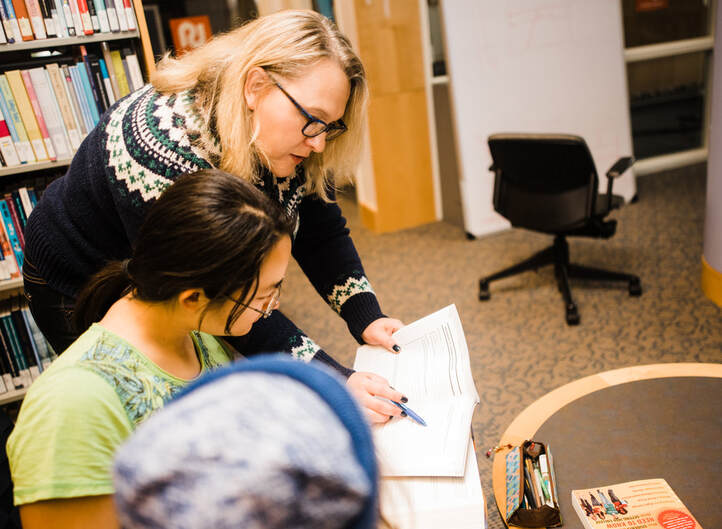
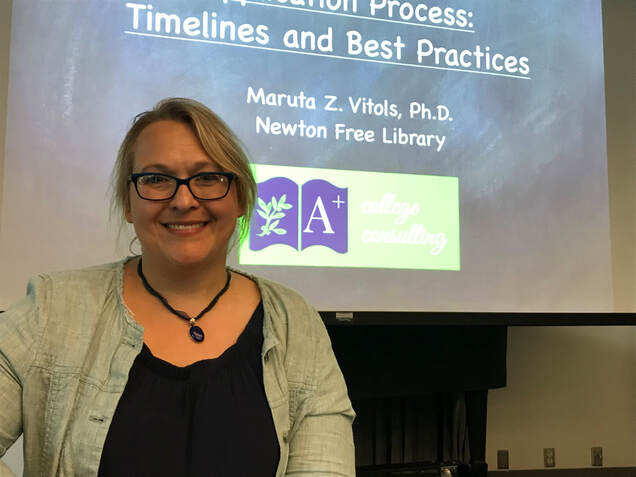



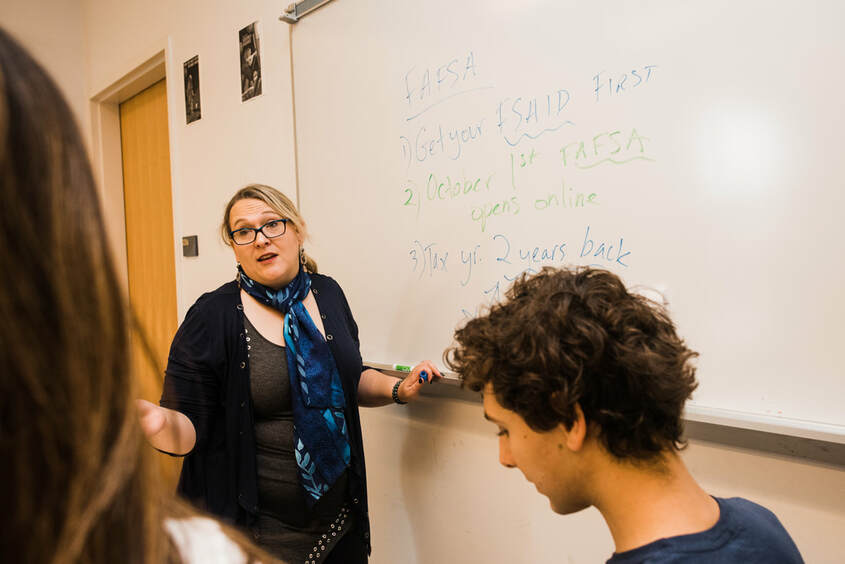

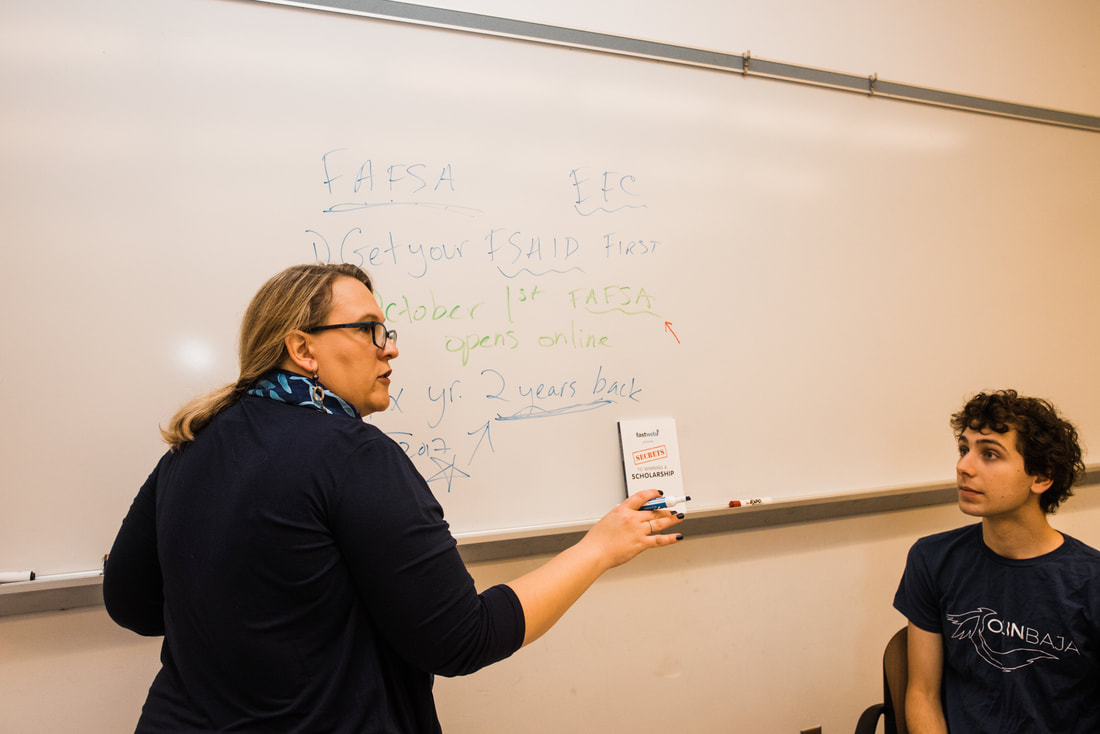
 RSS Feed
RSS Feed